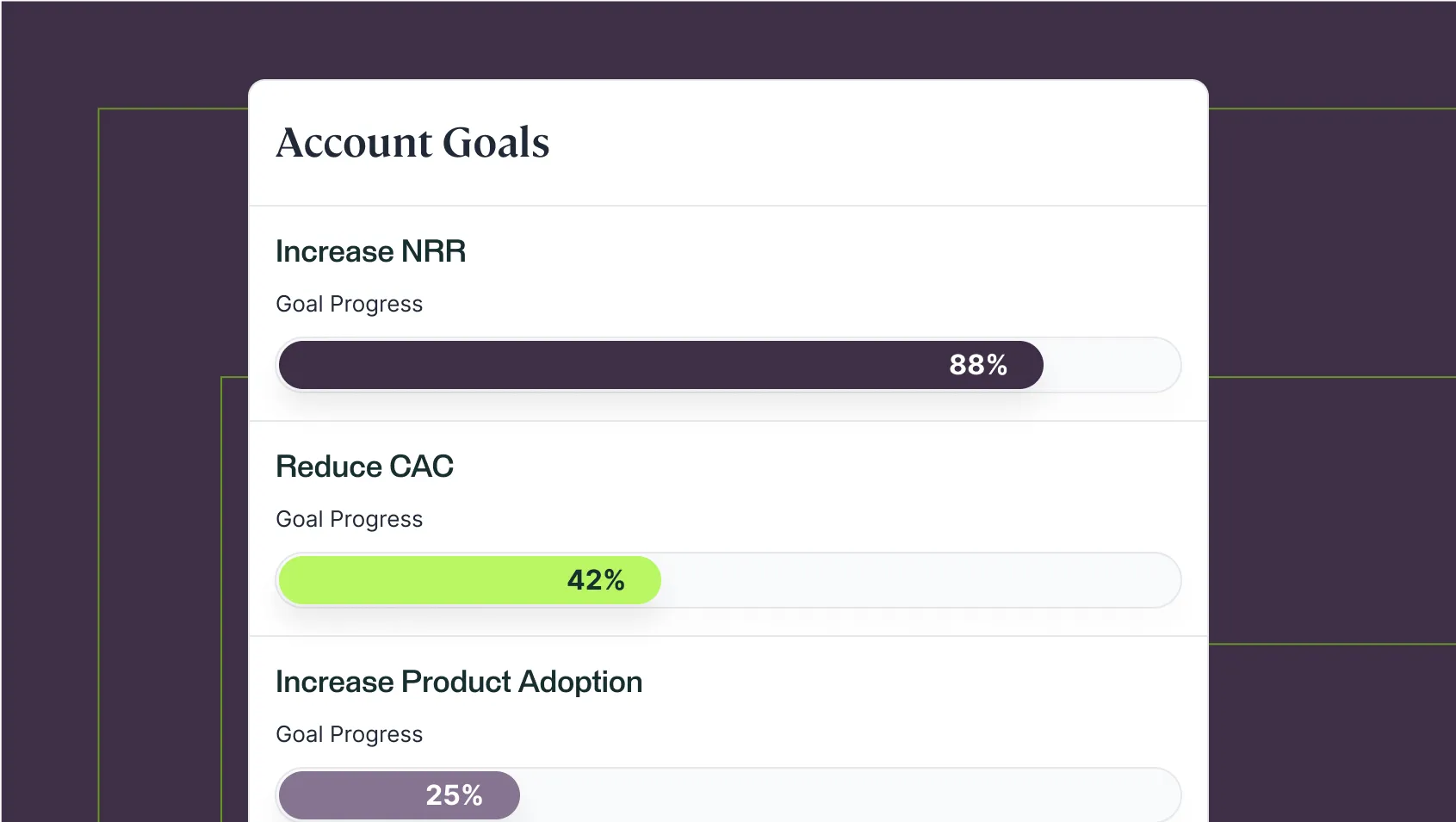
Features

Prioritize customer outcomes
Align your team to deliver moments of impact that drive customer growth.

Deliver recurring impact
Execute your digital strategy and consistently deliver value throughout the journey.

Elevate your GTM strategy
Understand the “why” behind key metrics and identify effective strategies that help you scale success.
See who's with us







“Customer-Led Growth (CLG) is so impactful because it keeps the focus where it needs to be: customers! As they achieve success, they’ll renew, expand, become natural advocates and so much more. ”










